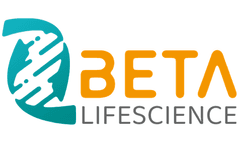Autoimmune Disorder Articles & Analysis
25 articles found
Tissue cross-reactivity studies play an essential role in the understanding of immune responses, particularly in the context of autoimmunity, transplant rejection, and vaccine development. These studies aim to identify whether antibodies or T cells generated against a particular antigen react with similar proteins found in different tissues, which can lead to unintended effects ...
Have you started snoring suddenly and have other health issues that have emerged recently? Although snoring is usually considered as a harmless annoyance, it is actually a symptom of deeper health issues, such as hypothyroidism. This is when the thyroid reduces the production of thyroid, a vital hormone and there is a deficiency in the body. Though the connection between hypothyroidism and ...
These chemokines protein allows researchers to study the functional dynamics of chemokine-receptor interactions in controlled environments, facilitating the development of targeted therapies for a range of diseases, including cancer, autoimmune disorders, and chronic inflammatory conditions. One of the most significant applications lies in cancer immunotherapy. ...
Their highly specific interactions with biological targets offer unprecedented precision in treating autoimmune disorders, cancers, and genetic conditions. However, their structural complexity presents unique manufacturing challenges, requiring specialized bioprocessing techniques, cold chain management, and sophisticated analytical methods. ...
In recent years, the field of antibody drug design has become increasingly significant in the realm of therapeutic development, driven by the need for more effective and targeted treatments for various diseases, including cancer, autoimmune disorders, and infectious diseases. Antibodies, which are proteins produced by the immune system, have the ability to ...
Applications of Single-Domain Antibodies Single-domain antibodies have a wide array of applications across multiple fields: Therapeutics: They are being explored as potential treatments for various diseases, including cancer, infectious diseases, and autoimmune disorders, due to their ability to specifically target antigens. ...
As a result, PROTACs have emerged as a promising strategy in various fields such as oncology, neurodegenerative disorders, and autoimmune diseases. The Role of Discovery Services Discovery services play a critical role in the early stages of PROTAC development. ...
This approach is especially beneficial for investigating diseases with immune dysregulation, such as cancer, autoimmune disorders, or infectious diseases, where multiple cytokines orchestrate pathological processes. ...
This approach has opened new avenues for immunotherapy, providing hope for treating conditions like cancer, autoimmune disorders, and genetic diseases. Understanding Primary T Cells Primary T cells play a vital role in the body’s defense mechanism. ...
This process also aids in screening for monoclonal antibodies with high specificity and affinity, crucial for therapeutic applications in oncology, infectious diseases, and autoimmune disorders. 4. Glycan-Based Drug Discovery The study of glycan structures has led to the discovery of novel drug candidates targeting glycan-related pathways. ...
Conditions such as diabetes and autoimmune disorders can affect the health of the cornea and, by extension, the epithelial cells. ...
They play a crucial role in the development of diagnostic kits for diseases such as HIV, hepatitis, and various autoimmune disorders. Research and Development Synthetic peptides are invaluable in research settings for studying receptor interactions, enzyme activities, and signal transduction pathways. ...
These engineered antibodies have become invaluable tools in the fight against a wide range of diseases, from cancer and autoimmune disorders to infectious diseases and neurological conditions. ...
Dysregulation of these molecules can lead to various diseases, including cancer metastasis, autoimmune disorders, and developmental abnormalities. The molecules are found on the cell surface, where they facilitate adhesion to neighboring cells or the extracellular matrix, creating stable cell structures and supporting tissue organization. ...
ELISA is commonly used to diagnose infectious diseases, autoimmune disorders, and even cancer. Another enzyme-based diagnostic tool is polymerase chain reaction (PCR), which can detect and amplify small amounts of DNA or RNA in a patient's sample. PCR is commonly used to diagnose viral and bacterial infections, as well as genetic disorders. ...
Low dose injectable IL-2 in animal models has been shown to restore the balance between regulatory and effector T cells and, in this way, can help to reverse autoimmunity and the development of type I diabetes. Looking ahead, we anticipate that having a suitable oral formulation of IL-2 to use in children with recent onset type I diabetes will be important. Once the proof of ...
These factors limit progress in developing new treatments for conditions like Alzheimer’s Disease, Parkinson’s Disease, Cancers, Autoimmune Disorders, and many others. Many of us have loved ones or know someone living with a condition that has no treatment and limited options for improving quality of life. ...
As countries worldwide start relaxing rules and lifting coronavirus restrictions, including wearing face masks in public, people with a weakened immune system may still need to protect themselves against airborne viruses and benefit from cleaner, purified air. ...
In honor of National Fibromyalgia Awareness Day this month, we are doing our part to set the record straight on Fibromyalgia, a condition the MayoClinic calls “one of the most misunderstood disorders in medicine today.” Once thought to be an autoimmune or inflammatory disorder, specialists now agree that fibromyalgia is a ...
During the first phase of the strategy, the Danish National Genome Center and its collaborators will recruit and sequence whole genomes of 60,000 patients diagnosed with cancer, autoimmune disorders and rare diseases by 2024. The platform will deliver a next-generation computational infrastructure within Denmark's on-premise supercomputing center, allowing the ...
ByLifebit















